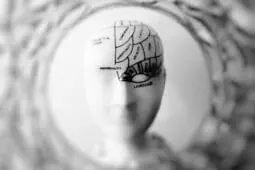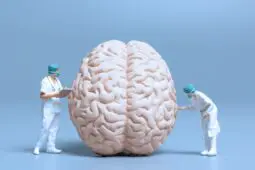Trauma
The New Frontier in Trauma Treatment?
The Promise of MDMAUsing drugs like MDMA (aka Ecstasy) may be the new frontier of trauma treatment. Read more
VIDEO: Richard Schwartz on Being a Compassionate Witness to Yourself
How Internal Family Systems Gives Traumatized Clients Their Power BackAccording to Richard Schwartz, the originator of Internal Family Systems therapy, the natural state of the mind is to be subdivided into parts, which carry the... Read more
VIDEO: Lisa Ferentz on Planting the Seeds for Post-Traumatic Growth
Removing the Glass Ceiling for Trauma SurvivorsIt’s not always easy to tell trauma survivors in the midst of deep suffering that one day they’ll find meaning in what happened to them. But according to... Read more
VIDEO: Ken Hardy on Getting Through to Inner City Youth
Helping Traumatized Kids Discover Their Inner ResourcesIn its coverage of race-related discord, the media has fixed on lurid images of violence and destruction without providing much context for understanding the... Read more
Being There
Inhabiting the Moment with Traumatized TeensWith traumatized adolescent clients, it’s emotion that gradually changes emotion—not rational explanation or interpretation, not snazzy techniques or... Read more
VIDEO: Combining Trauma Treatment with Family Therapy
Making Sure Treatment Sticks Outside the Therapy RoomFar too often, trauma survivors appear to progress in therapy and then go home and fall right back into the same old patterns of negative emotion and... Read more
On the Front Lines of Crisis Work
What Keeps a Clinician Going in High-Stakes Therapy?By Gary Weinstein - I've been doing crisis work for nearly 30 years. I've confronted a number of forks in my professional road, opportunities to take a less... Read more
The Immigrant's Odyssey
Trauma, Loss, and the Promise of HealingImmigration is often a trauma that leaves indelible marks on those who’ve left behind family, cultural values, and status. Perhaps more than any other client... Read more
VIDEO: Maggie Phillips on the Four Levels of Traumatic Pain
Exploring an Uncommon Side Effect of TraumaWhen Maggie Phillips and Peter Levine co-authored Freedom from Pain, they aimed to explore what’s been missing from the field’s treatment of chronic... Read more
Then, Now & Tomorrow
Oral Histories of Psychotherapy 1978-2017A group of innovators and leaders look back over different realms of therapeutic practice and offer their view of the eureka moments, the mistakes and... Read more
Left to Our Own Devices
Sorting Through The Bewildering World Of Therapeutic AppsMobile apps offer tools for everything from depression, social anxiety, and binge eating to phobias, OCD, postpartum problems, and substance abuse recovery. In... Read more
Is VR a Game Changer?
Virtual Reality in TherapyTo date, virtual reality’s most visible therapeutic role has been in the treatment of phobias and other conditions where it’s served as an adjunct to... Read more
Therapists wade into the controversy about trigger warnings for potentially disturbing college course material. Read more
Responding to Extreme Trauma Symptoms
How Neuroscience Can HelpHow an understanding of the brain can inform our trauma interventions. Read more
VIDEO: Diane Poole Heller on the Hidden Capabilities of Trauma Survivors
Watch as a Traumatized Client Taps Into a Wellspring of Healing in an Actual SessionThink all traumatized clients are shut-down and energy-sapped? Think again. In this clip from her Networker Symposium Keynote, "Creating a Corrective Emotional... Read more
Transcending Trauma
Learning How to Guide Devastated Clients Toward GrowthIn the early days of the trauma field, clients were seen as one-dimensional bundles of dysfunction and pain, who needed to relive their trauma before progress... Read more
The Bonds of War
PTSD Reconsidered“In addition to all the destruction and loss of life, war also inspires ancient human virtues of courage, loyalty, and selflessness that can be utterly... Read more
A grassroots effort to serve the mental health needs of veterans enables therapists to extend to their impact. Read more
Therapists reflect on the terror attack in Paris. Read more
New Technologies for Today’s Practitioners
Using Virtual Reality to treat PTSDThe increasingly accessible and inexpensive technology of virtual reality now enables us to incorporate digital Skinner boxes in our practices that can enhance... Read more
A Cure for the Yips
Brainspotting and Performance BlocksTraumatic experiences are often the root of athletic and other kinds of performance blocks. Read more
Who Do You Trust?
Revisiting the McMartin Preschool CaseSometimes it can be easier to argue about witch-hunts than risk confronting the dark, unsavory reality of child abuse. Read more
Helping Therapy Clients Cope with the Reality of Death
Clinical Wisdom to Combat Fear, Anxiety, and Grief at the End of LifeFor 17 years, managing responses to death has become part of my work, whether originally my intention or not. I’ve aspired to helping families hang tough... Read more
A Brain Science Strategy for Overwriting Traumatic Memories
Creating Juxtaposition Experiences to Relieve Trauma SymptomsBrain science offers powerful guidance for freeing clients from the distress triggered by disturbing implicit memories. Read more
VIDEO: Moving Forward When Treatment Seems to Make a Problem Worse
Chris Germer on shifting the focus from fixing a problem to embracing it with compassionWhat someone resists persists. It’s a paradoxical dynamic that you’ve probably seen in the course of your own clinical work. In this video, Chris explains... Read more
Functional Family Therapy: A New Road Map for Behavioral Change
Using FFT to Get Parents and Kids Motivated, Allied, and Committed to ChangeOver the years, I’ve found that I’ve needed a solid, research-backed clinical model, which would guide me in sessions and keep me grounded during... Read more
VIDEO: Treating Anxiety
David Burns on the Paradox of ResistanceDavid Burns explains how he addresses outcome and process resistance in a way that quickly leads to meaningful and lasting change with clients. Read more
IFS for Self-Compassion
Some Forms of Self-Love Are Harder than OthersIFS founder Dick Schwartz believes a genuine state of self-compassion entails a journey into multiple parts of yourself that may include the good, the bad, the... Read more
Life after Trauma
What are the possibilities for post-traumatic growth?The new emphasis on the transformative power of trauma can be a template for false assumptions about the “gift” of suffering and the meaning of recovery. Read more
VIDEO: Depression Is Not a Disease, It’s a Wake-Up Call
James Gordon on Healing without AntidepressantsDepression is not a disease, so the promise of antidepressants as a cure just doesn’t hold water. That’s the assessment of James Gordon, M.D. and he should... Read more




























